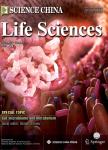Single-cell genomic profile-based analysis of tissue differentiation in colorectal cancer
Single-cell genomic profile-based analysis of tissue differentiation in colorectal cancer作者机构:MOE Key Lab of Bioinformatics and Bioinformatics DivisionBNRISTDepartment of AutomationTsinghua-Peking Joint Center for Life SciencesCenter for Synthetic and Systems BiologyTsinghua UniversityBeijing 100084China MOE Key Laboratory of Carcinogenesis and Translational ResearchDepartment of Human AnatomyHistology and EmbryologyState Key Laboratory of Natural and Biomimetic DrugsPeking University Health Science CenterBeijing 100191China
出 版 物:《Science China(Life Sciences)》 (中国科学(生命科学英文版))
年 卷 期:2021年第64卷第8期
页 面:1311-1325页
核心收录:
学科分类:1002[医学-临床医学] 100214[医学-肿瘤学] 10[医学]
基 金:supported in part by the National Key R&D Program of China(2017YFC0910400) the National Natural Science Foundation of China(61721003) Tsinghua-Fuzhou Institute for Data Technology(TFIDT2018006) China Postdoctoral Science Foundation(2020M670297)
主 题:colorectal cancer sustained
摘 要:Colorectal cancer(CRC) progression is associated with cancer cell dedifferentiation and stemness acquisition. Several methods have been developed to identify stemness signatures in CRCs. However, studies that directly measured the degree of dedifferentiation in CRC tissues are limited. It is unclear how the differentiation states change during CRC progression. To address this, we develop a method to analyze the tissue differentiation spectrum in colorectal cancer using normal gastrointestinal singlecell transcriptome data. Applying this method on 281 tumor samples from The Cancer Genome Atlas Colon Adenocarcinoma dataset, we identified three major CRC subtypes with distinct tissue differentiation pattern. We observed that differentiation states are closely correlated with anti-tumor immune response and patient outcomes in CRC. Highly dedifferentiated CRC samples escaped the immune surveillance and exhibited poor outcomes;mildly dedifferentiated CRC samples showed resistance to anti-tumor immune responses and had a worse survival rate;well-differentiated CRC samples showed sustained anti-tumor immune responses and had a good prognosis. Overall, the spectrum of tissue differentiation observed in CRCs can be used for future clinical risk stratification and subtype-based therapy selection.



